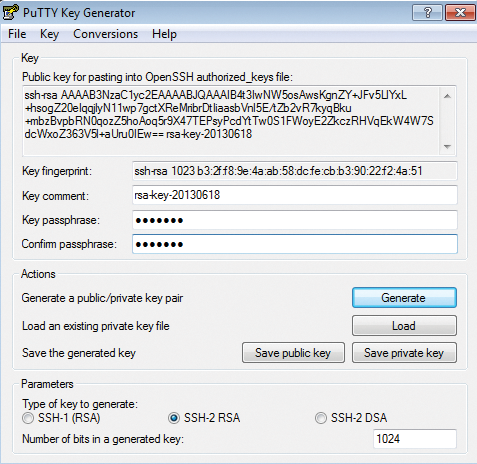

Rv.append( '%s=%s' % (urllib.quote_plus( str(k)), urllib. # this will suppress None and empty values. buffer (A Python string object, either unicode or bytestring.) The buffer the key is stored in. Parameters: type The file type (one of FILETYPEPEM, FILETYPEASN1). If you are annoyed with entering a password, then you can use the above openssl rsa -in geekflare.key -check to remove the passphrase key from an existing key.

Is_self_issued = args.issuer = "" privateKey = _pkcs1( open(args.private_key, "rb").read()) def b64u_encode( s): return base64.urlsafe_b64encode(s).rstrip( '=')ĭef compact_json( obj): return json.dumps(obj, indent= None, separators=( ',', ':'))ĭef urlencode( query): # urllib.urlencode will encode a None value as a string None. loadpublickey (type: int, buffer: Union str, bytes) PKey ¶ Load a public key from a buffer. openssl rsa -in certkey.key -out nopassphrase.key If you are using passphrase in key file and using Apache then every time you start, you have to enter the password.

Parser.add_argument( 'uri', help= "URI to access") Parser.add_argument( '-d', '-debug', action= 'store_true') Help= "output the bare access token instead of the full JSON response") Typically, this encrypted connection is provided by either TLS or SSL. Parser.add_argument( '-t', '-token-only', action= 'store_true', Youll see concrete examples of how a Python HTTPS application keeps information. myPrivateKey.pem -passout pass:f00bar -des3 2048. Parser.add_argument( '-A', '-app-auth', help= "app authorizations URI (use multiple times)", action= 'append') forward from: Install Cryptor library Generate rsa public and private keys Private key openssl genrsa -out. Parser.add_argument( '-K', '-key-id', help= "JWK kid (default %(default)s)") Help= "id_token issuer (default %(default)s)") Parser.add_argument( '-i', '-issuer', default= "", Help= "application id (default %(default)s)") Parser.add_argument( '-a', '-app-id', default= "",


 0 kommentar(er)
0 kommentar(er)
